The waterworks conclude with the month's last entry from abstew. And it's a doozy...
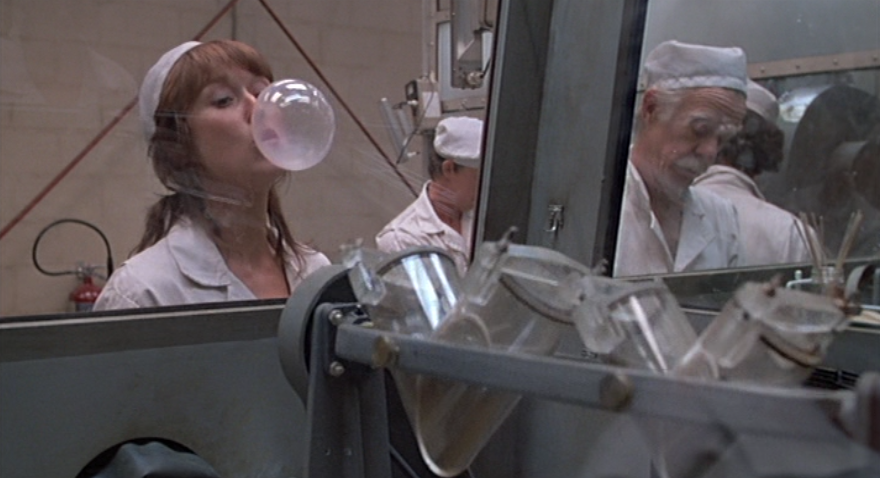
Although the most famous shower scene in the history of film may belong to Hitchcock's Psycho, no other cinematic shower has entered into pop culture, taking on a life of its own outside the film, in quite the same way as Silkwood. To take a Silkwood shower is even an entry in the urban dictionary (so you know it's legit.) But for something that has morphed into such an iconic cultural moment, it may be surprising to note that Meryl Streep only spends a little less than a minute in the film's entire two hour running time actually in the (invasive) cleansing waters. Despite its brevity, its emotional impact is palpable.
Director Mike Nichols' 1983 film is based on the true story of a chemical technician named Karen Silkwood, who worked in a nuclear power plant in Oklahoma during the 1970s. Silkwood became a whistleblower, consulting with officials in Washington, DC, when she began questioning the unethical practices of the company she worked for and what they deemed acceptable amounts of radiation exposure (um, that would be none). Once an individual becomes contaminated, they are taken away by faceless men in hazmat suits to be vigorously scrubbed clean. The first person we actually witness this happening to is Karen's co-worker Thelma (Sudie Bond).
Once Karen hears of her friend's situation, she immediately drops what she's doing (cautiously, I hope, she's handling radioactive material!) and rushes to be by her side. The older woman's screams are heard as Karen rushes into the shower stall. She's not worried about becoming contaminating herself, only concerned for Thelma's own safety. And the look on her face as she watches the men scrub is one of sympathy, but also a bit of relief that at least it's not Karen herself...
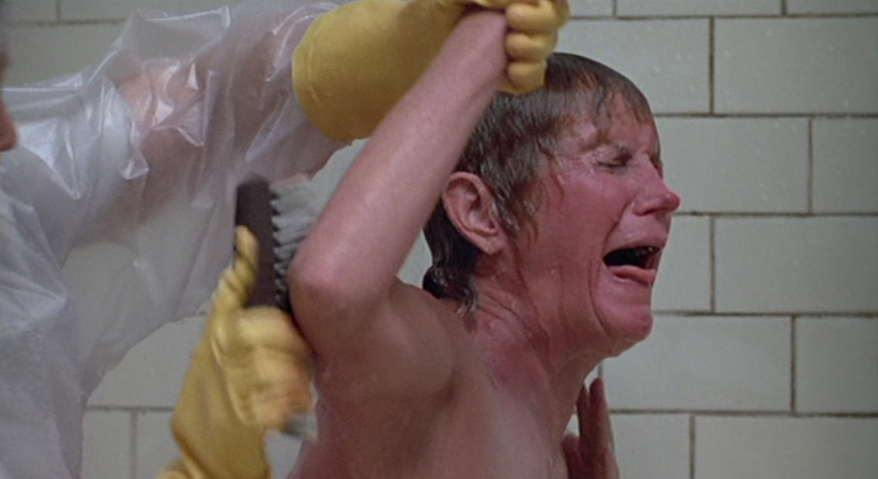

In case you couldn't tell from that very first picture where Karen is blowing a bubble while working with hazardous materials early on in the film, she doesn't take things too seriously. She really only works at the plant because it's the only option she has. During a tour of the plant when she's called a highly trained technician by a higher-up, she can't help letting a mischievous grin spread. She's so unorganized that she doesn't even properly plan time off in advance to see her three young children that live elsewhere with their father.
After a bit of goofing off with a birthday cake for a co-worker's birthday, Karen, who is reprimanded by her boss, returns to her work station after everyone has left to clean up the mess. After waving her hand against the monitor that detects radiation–just like she does every single day when she leaves–her worst fears come true: She is contaminated. All alone, she patiently waits for what inevitably comes next.
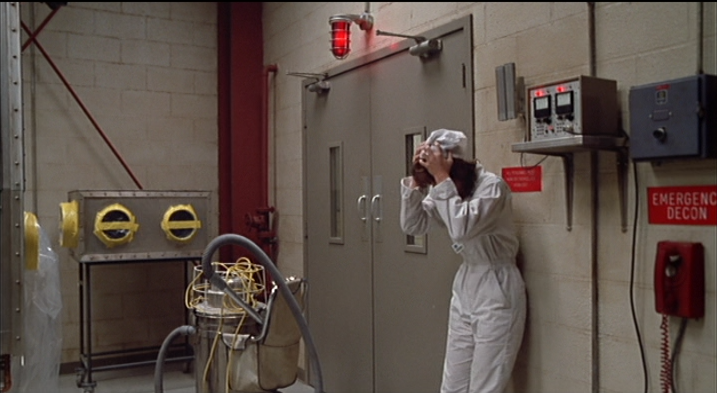
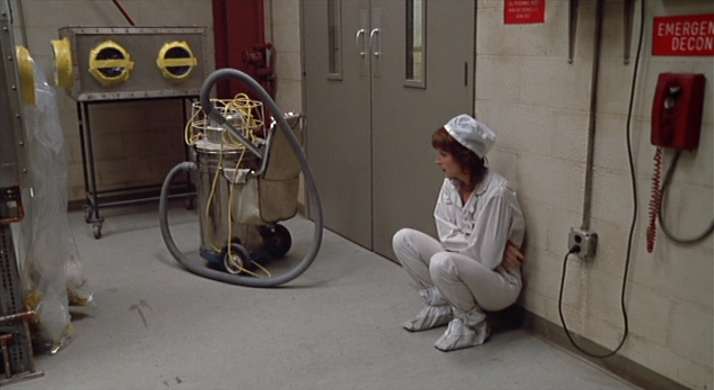



In contrast to the hysterics of Thelma in the earlier scene, Karen seems to have resigned herself to the treatment. Even as the men scrub harder, she never lets out a sound only mouthing the word 'ouch' when the pain gets to her. Although she is the victim here, she seems to feel guilt as if she brought this upon herself. Earlier she had been accused of perpetrating a contamination that shut down the plant for a few days. Perhaps her resistance in allowing the pain to register is in response to the inescapable torment she'll face from her co-workers. It is useless to fight at this point. So unfazed by it all, she's even able to smoke a cigarette after it's over. It seems almost post-coital, but I'm sure the experience was less than satisfying.
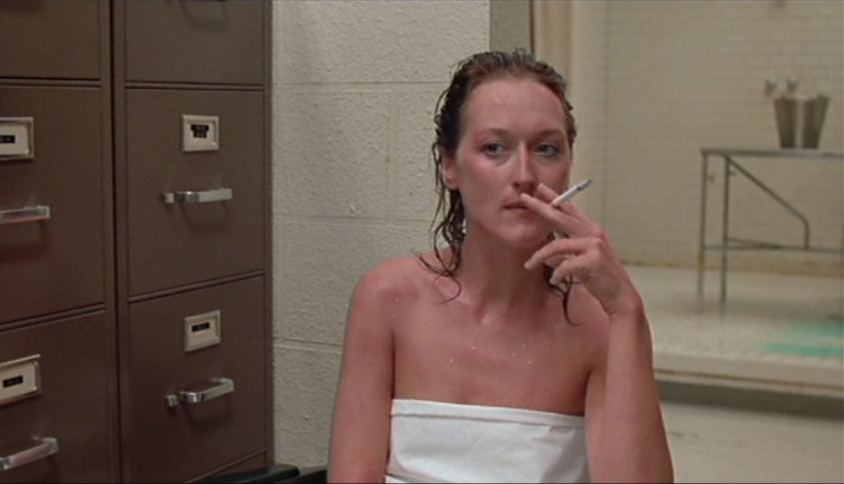
But the shower is the catalyst Karen needs to find out more about what exactly happened to her. Traditionally, showers are used in films to signal a washing away of the past and there's no doubt this once devil-may-care woman has been altered by this particular shower. She is now determined to expose the company for the damages it is causing. No longer content to sit back, she is taking action.
After the incident, Karen is transferred to another department. The company is trying to shut her up, but she won't be silenced and even her former colleagues don't seem to be on her side. After telling them off, she tries to leave, but...
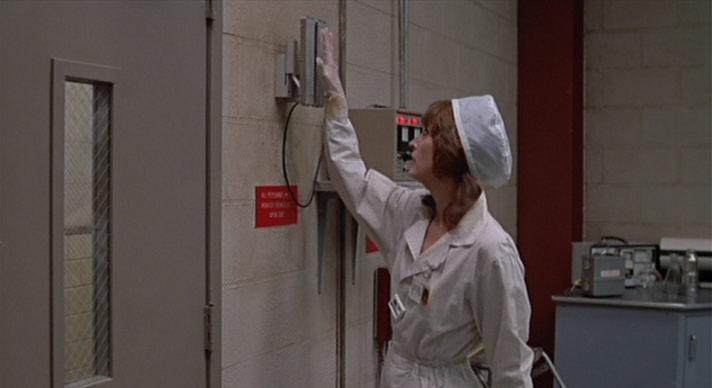
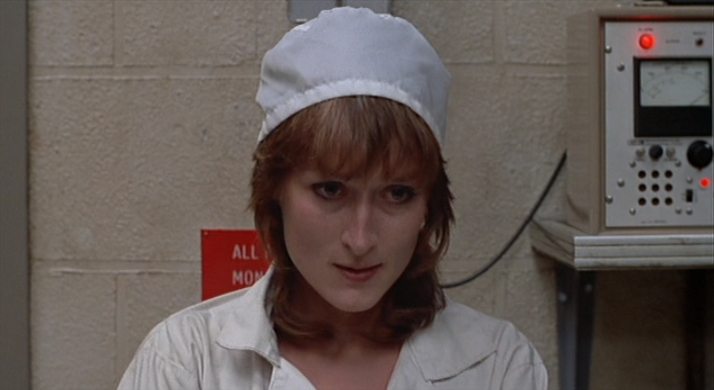
Wiser to the fact that any exposure to radiation is harmful, she is now pissed. This time is different than before. No longer waiting with head in hand, accepting what is to come, she stoically seethes with rage. Her eyes tearing up with thoughts of the painful shower and what must be endured. She's been there before and knows what it's about.

But this time Nichols mercifully saves us from the horrifying site and cuts to Karen in her towel. This time around, no stunned look on her face, no cigarette dangling from her freshly scoured lips, nothing but a contemptuous glare. What exactly is going on with her? Why does this keep happening? She must prevent it it from happening to her or anyone else again. Never again will she experience the humiliation and pain of the shower. If only that were the case.
Throwing herself into her crusade against the company, Karen has started to make enemies. Little does she know what danger she's already in. Entering the building as she comes into work for the morning, the radiation detector sounds.
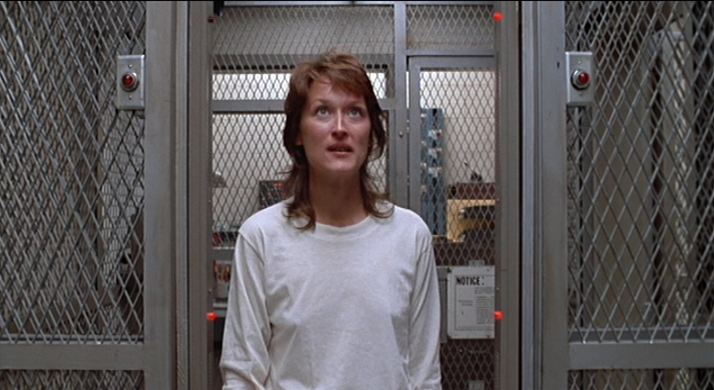
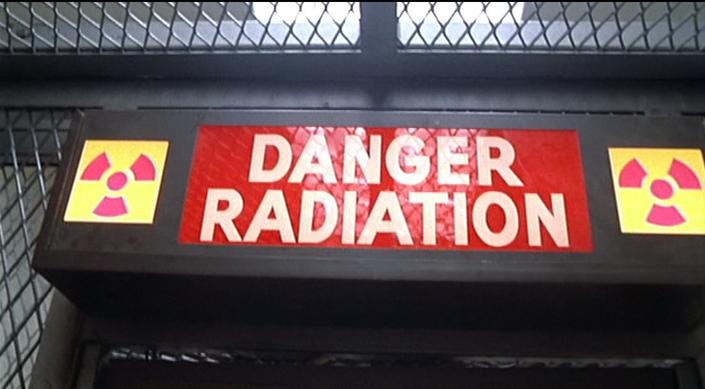

This is serious. No longer could it be a possible break in her rubber gloves causing the contamination from a brief contact to the materials. It is, without a doubt, inside of her. Everything in the film has built to this moment. Only this time Nichols' camera does not allow us to turn away from the terrifying brutality and horror:
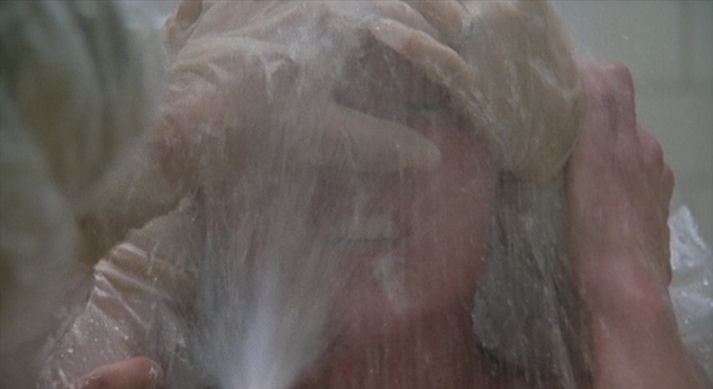


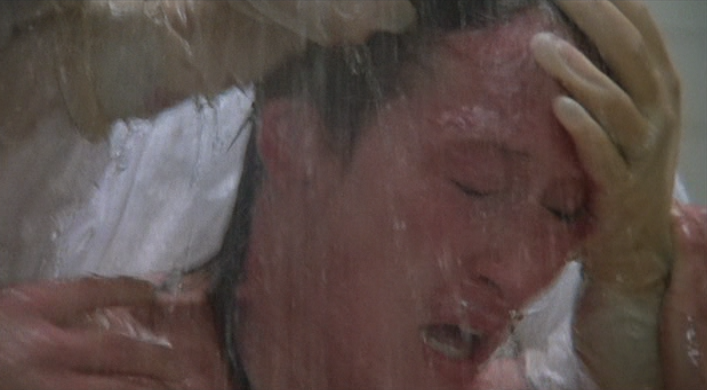
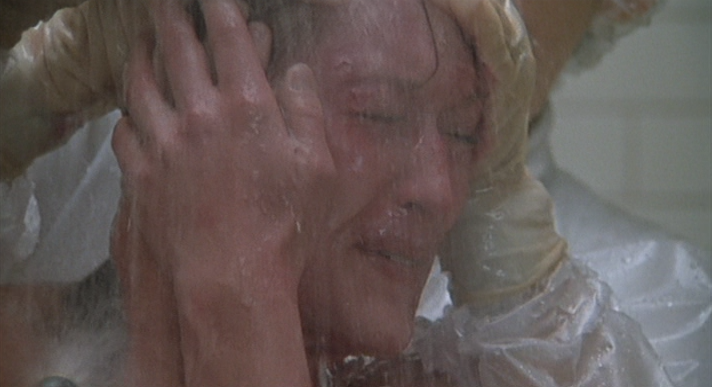
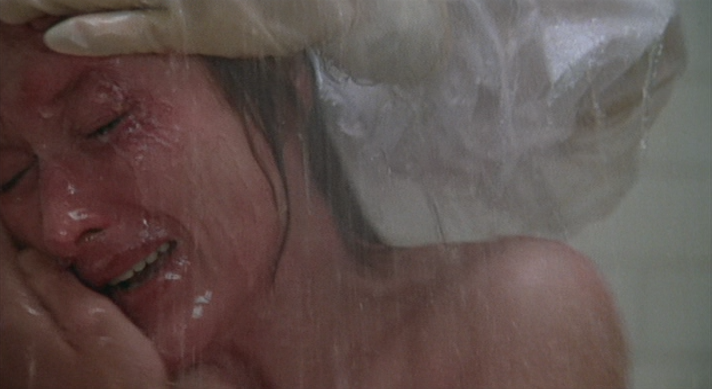
For what seems like an eternity, the camera uncomfortably lingers in close up on Karen's face as she is blasted with water. It is powerful filmmaking that packs an emotional punch. Once you've seen that last shower scene, you won't soon forget it. You may even have to take a Silkwood shower of your own to get it out of your mind.